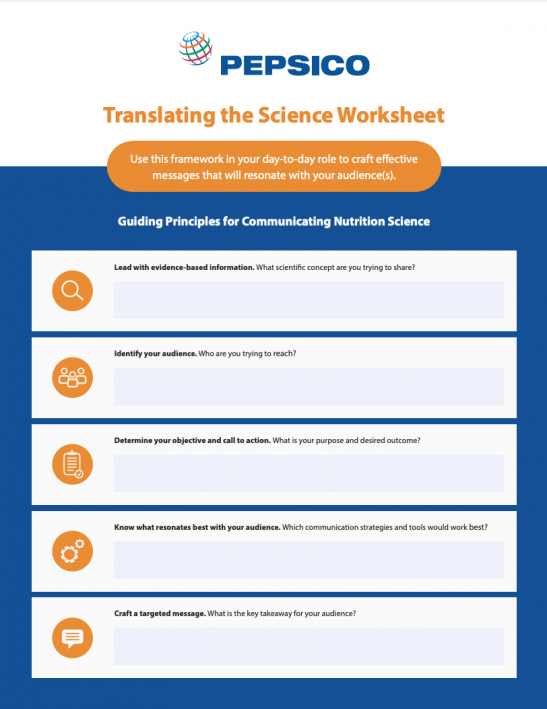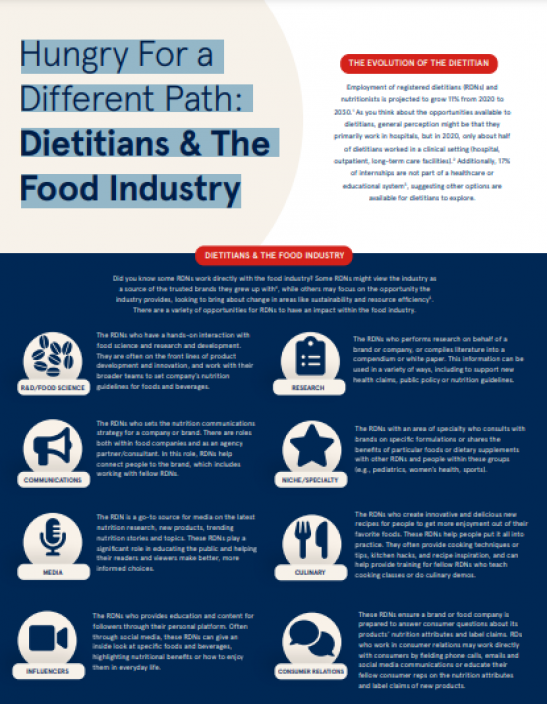Zachwieja, J., Hentges, E., Hill, J. O., Black, R., & Vassileva, M. (2013). Public-private partnerships: The evolving role of industry funding in nutrition research. Advances in Nutrition, 4(5), 570-572. doi:10.3945/an.113.004382
Abstract:
The global burdens of morbidity and mortality associated with obesity-related chronic diseases are crippling public health and are predicted to exponentially increase over the next 3 decades. Meanwhile, the resources necessary to conduct research that may offer solutions to the obesity epidemic continue to decline and funding has become increasingly difficult to secure. Alternative models for funding nutrition and health research are necessary to make considerable and timely progress to improve public health. Key stakeholders include, but are not limited to, government agencies, foundations, private industry, and nongovernmental organizations.
Alexander, E., Yach, D., & Mensah, G. A. (2011). Major multinational food and beverage companies and informal sector contributions to global food consumption: Implications for nutrition policy. Globalization and Health, 7, 26. doi:10.1186/1744-8603-7-26
Abstract:
Background In recent years, 10 major multinational food and beverage companies have worked together within the International Food and Beverage Alliance (IFBA) to increase their commitments to public health. Current IFBA commitments include initiatives to improve the nutrition quality of products and how these products are advertised to children. The impact and magnitude of IFBA member contributions to the total market share of packaged foods and beverages consumed remain incompletely understood, however. Methods In order to evaluate this impact, we examined packaged food and soft drink company shares provided by Euromonitor, an international independent market analysis company. Packaged foods include baby food, bakery, canned/preserved food, chilled/processed food, confectionery, dairy, dried processed food, frozen processed food, ice cream, meal replacement, noodles, oils and fats, pasta, ready meals, sauces, dressings and condiments, snack bars, soup, spreads, and sweet and savoury snacks. Soft drinks include carbonates, packaged fruit/vegetable juice, bottled water, functional drinks, concentrates, ready-to-drink tea, ready-to-drink coffee and Asian specialty drinks. We calculated the market shares for IFBA companies, globally and within nine countries--the US, China, India, Egypt, South Africa, Brazil, Mexico, Turkey and the UK. Results Worldwide, the top ten packaged food companies account for 15.2% of sales, with each individual company contributing less than 3.3%. The top ten soft drink companies account for 52.3% of sales worldwide; Coca-Cola and PepsiCo lead with 25.9% and 11.5% of sales, respectively. Conclusions Although the top ten soft drink companies account for half of global sales, the top ten packaged food companies account for only a small proportion of market share with most individual companies contributing less than 3.3% each. Major multinational companies need to be joined by the myriad of small- and medium-sized enterprises in developing and implementing programs to improve the health of the public, globally. Without full participation of these companies, the impact of commitments made by IFBA members and other major multinational food and beverage companies will remain limited.
Yach, D., Feldman, Z. A., Bradley, D. G., & Khan, M. (2010). Can the food industry help tackle the growing global burden of undernutrition? American Journal of Public Health, 100(6), 974-980. doi:10.2105/AJPH.2009.174359
Abstract:
Hunger and undernutrition remain major threats to global health. The solutions required will be complex and long term and should include stronger private–public collaboration. We identify eight specific actions by food companies that could contribute to reducing hunger worldwide. These include investing in agriculture, especially local smallholders; expanding use of corporations’ core capabilities in distribution and quality control; greater support for fortification of staples and commonly consumed nutritious foods and beverages; expansion of the portfolio of foods currently available for complementary feeding in settings of acute and chronic undernutrition; cocreation of new and innovative social business models to help combat the global burden of undernutrition; investment in the development of nutrition science capacity, especially in developing nations; innovation of product reformulation aimed at developing low-cost nutritious foods for all markets; and committed advocacy by multinational food and beverage corporations for nutrition-friendly trade policies.
Feldman, Z., Bradley, D. G., & Greenberg, D. (2010). The food and beverage industry's efforts regarding obesity prevention. Obesity Epidemiology: From Aetiology to Public Health. Oxford Scholarship Online. doi:10.1093/acprof:oso/9780199571512.003.0024
Abstract:
It is well known that obesity affects populations in both developed and developing countries, with significant consequences for public health. What is less understood is the role of the food and beverage industry in reducing the prevalence of obesity and its long-term consequences on individuals and, potentially, society. This chapter addresses the industry's role in obesity prevention by citing examples of industry-led initiatives offering early indicators that the industry can contribute to the effort of global obesity prevention.
Yach, D., Khan, M., Bradley, D., Hargrove, R., . . . Mensah, G. (2010). The role and challenges of the food industry in addressing chronic disease. Globalization and Health, 6, 10. doi:10.1186/1744-8603-6-10
Abstract:
Increasingly, food companies play an important role in stemming the rising burden of nutrition-related chronic diseases. Concrete actions taken by these companies include global public commitments to address food reformulation, consumer information, responsible marketing, promotion of healthy lifestyles, and public-private partnerships. These actions are reviewed together with eleven specific PepsiCo goals and commitments that address products, the marketplace, and communities at large. Interim progress on these goals and commitments are discussed as well as constraints hampering faster progress. Further disease prevention depends on increasing implementation of private-public initiatives.



